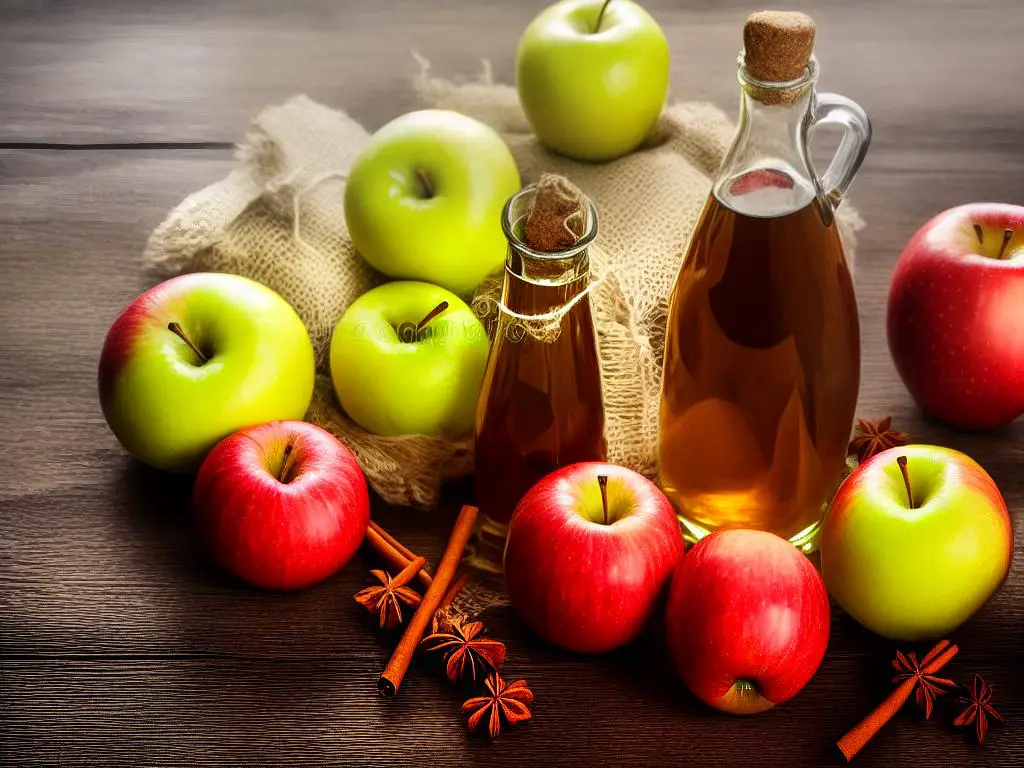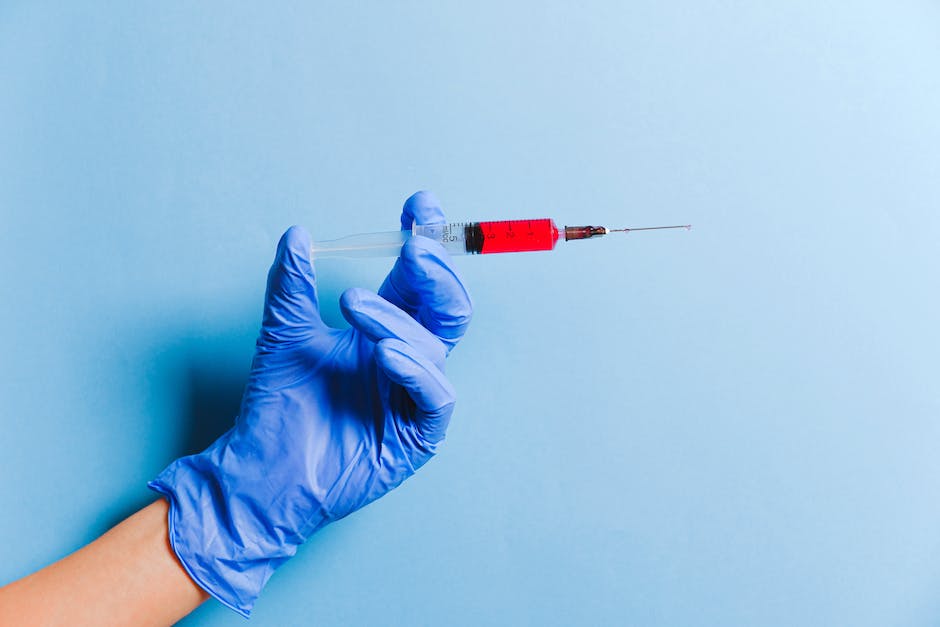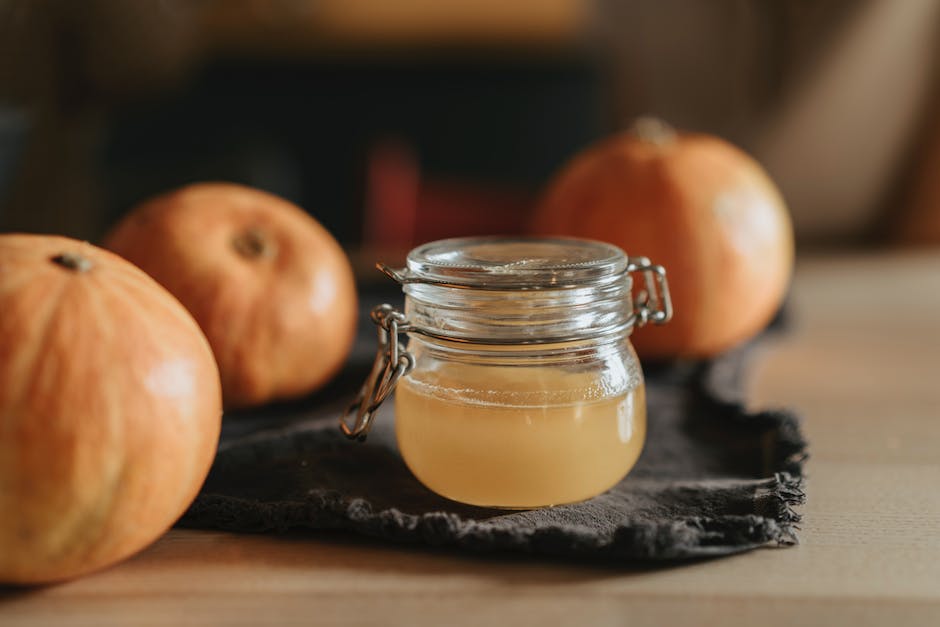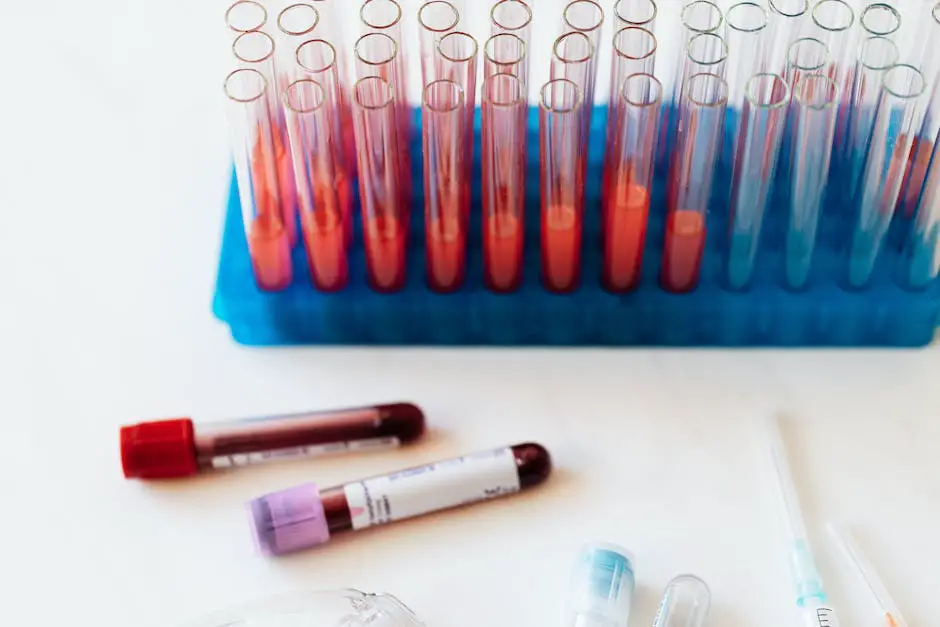Apple cider vinegar has become a popular health supplement, known for its potential benefits and versatile uses. Understanding the requirements for different types of blood tests and whether or not consuming apple cider vinegar before testing is important for ensuring accurate results. This article will cover the basics of apple cider vinegar, blood tests and fasting requirements, and expert recommendations on the subject.
What is Apple Cider Vinegar?
Apple cider vinegar is a type of vinegar made from fermented apple juice.It has various health benefits like helping with weight loss, acne, sore throats, and stomachaches.It contains acetic acid, which gives it its strong sour taste and odor.Making apple cider vinegar involves crushing apples, extracting the juice, and fermenting it with bacteria and yeast.Research suggests that it may help with blood sugar control, lower cholesterol levels, and aid in weight loss, but it’s important to consult with your healthcare provider before consuming it before a blood test.Regularly consuming apple cider vinegar requires discussing this habit with your healthcare provider to ensure accurate test results and avoid potential complications.

Blood Tests and Fasting Requirements
Blood tests serve as a common diagnostic tool for healthcare professionals, enabling them to check for various conditions and monitor an individual’s overall health. These tests come in many different forms, each designed to identify specific markers such as glucose levels, cholesterol levels, or the presence of infections. Therefore, it is important to inform your healthcare provider about any regular consumption of apple cider vinegar before undergoing blood tests to ensure a smooth testing process and accurate results.
Fasting requirements vary depending on the blood test being conducted, as certain tests require accurate baseline measurements of specific markers in the blood that can be influenced by food or drink consumption.
Fasting before certain blood tests, such as glucose tolerance tests and lipid panels, is necessary to ensure accurate results. This typically involves not consuming any food or drink (except water) for a period of 8-12 hours before the test. During this fasting period, substances that can influence blood test results, such as caffeine, alcohol, and some medications, should be avoided. Although water is typically allowed during the fasting period, other beverages may not be, such as apple cider vinegar, due to the potential effect on test results.
When preparing for a blood test, it is crucial to adhere to the fasting guidelines provided by your healthcare provider. If you are uncertain about whether you can consume apple cider vinegar before a particular blood test, it is always best to consult your healthcare provider for clarification. Following the recommended fasting guidelines will ensure the accuracy of the blood test results and help prevent the need for repeat testing, thus avoiding further inconvenience and increased healthcare costs.

Effects of Apple Cider Vinegar on Blood Test Results
Apple cider vinegar (ACV) is known to offer several health benefits, such as improving digestion and regulating blood sugar levels. However, it is important to recognize that consuming apple cider vinegar before a blood test could potentially affect the test results. This is dependent on the type of test being performed and the specific health factors being measured. Therefore, it is essential to consult your healthcare provider if you are considering consuming ACV prior to a blood test to avoid any discrepancies or complications with your test results.
For instance, ACV’s impact on blood sugar levels may lead to altered results for individuals undergoing a fasting glucose test or a test for diabetes.
One study has shown that consuming ACV can lead to a reduction in blood sugar levels after a meal, which could impact the results of a blood sugar test. Additionally, apple cider vinegar may also affect cholesterol levels, as some research has demonstrated its potential to improve high-density lipoprotein (HDL) cholesterol, also known as “good” cholesterol.
As such, consuming ACV before a lipid panel test might alter the outcome of the test and give an inaccurate representation of a person’s true cholesterol levels.
Apple cider vinegar (ACV) is known for its anti-inflammatory properties, which could potentially impact blood test results measuring inflammation markers, such as C-reactive protein (CRP) levels. Additionally, ACV has a blood-thinning effect. Consuming it before a blood test could lead to a change in blood coagulation factors, affecting a coagulation panel used to evaluate blood clotting. Therefore, it is crucial to consult with a healthcare professional before consuming apple cider vinegar prior to a blood test to ensure accurate results and appropriate interpretation of the test outcomes.

Expert Recommendations
It’s important to follow any guidelines provided by your doctor for blood tests, as healthcare professionals generally recommend fasting for 8-12 hours before certain blood tests to ensure accurate results. Drinking apple cider vinegar, which many people consume for its supposed health benefits (like improving digestion, weight loss, and blood sugar regulation), can potentially affect the outcome. So, it’s essential to follow the recommendations and dietary restrictions your doctor advises, especially when test results might be influenced by the consumption of apple cider vinegar.
Some experts believe that small amounts of apple cider vinegar may not have a significant impact on blood tests. However, it is essential to note that ACV can have various effects on individuals’ blood sugar levels, depending on factors such as their overall health and medications taken.
Additionally, ACV’s acidity can sometimes cause gastrointestinal discomfort, which may not be ideal before blood tests.
If you are unsure about consuming ACV before a blood test, it is crucial to consult with your healthcare provider to ensure accurate results and avoid any potential adverse effects on your health.
When preparing for a blood test, it’s important to know what you can and cannot consume beforehand to ensure accurate and reliable results. Though apple cider vinegar is known for its potential health benefits, it’s generally best to avoid it before a blood test. Instead, opt for alternatives like water or black coffee, which typically do not interfere with test results.
Make sure to refrain from consuming other liquids or food for 8-12 hours preceding the test, including common favorites like juices and teas.
To ensure proper preparation, it is recommended to discuss the specifics of your blood test and what you can safely consume with your healthcare provider.

FAQs and Tips
Many people often wonder if they can consume apple cider vinegar before a blood test, especially considering its potential health benefits. It’s essential to understand that while apple cider vinegar may not necessarily have a significant impact on your results, it’s still best to avoid it prior to the test. This is because apple cider vinegar can alter your body’s pH levels, which in turn could potentially affect some test results.
If you have a specific blood test scheduled, be sure to consult with your healthcare provider for personalized advice on whether it is safe to consume apple cider vinegar before your appointment.
When getting ready for a blood test, it is generally advised to fast for 8-12 hours to ensure the most accurate results, and this includes abstaining from apple cider vinegar as well. You may want to consider taking a temporary break from apple cider vinegar consumption in the days leading up to the blood test and resume its usage after you have successfully completed the test. Staying hydrated by drinking plenty of water in preparation for the blood test is crucial, as it can help make the blood draw process smoother and more comfortable.
Another tip to ensure accurate blood test results is to follow the pre-test instructions provided by your doctor or healthcare provider strictly. This may include specific dietary restrictions, avoiding certain medications, or maintaining a consistent sleep schedule. By adhering to the guidelines laid out by your healthcare professional, you can better guarantee that your blood test results will accurately reflect your current health status, providing your doctor with essential information to guide your care moving forward.
Ultimately, the key to a successful blood test is good communication between you and your healthcare provider, and ensuring that you follow any directions given in advance of the test.

All things considered, it is essential to consult with healthcare professionals before relying on apple cider vinegar to improve your health or potentially interfering with medical testing. It’s important to ensure accurate blood test results by understanding the appropriate fasting requirements and guidelines, as well as being aware of any potential effects of consuming apple cider vinegar beforehand. Ultimately, being informed and following expert advice are key to making the best health decisions for your individual needs.